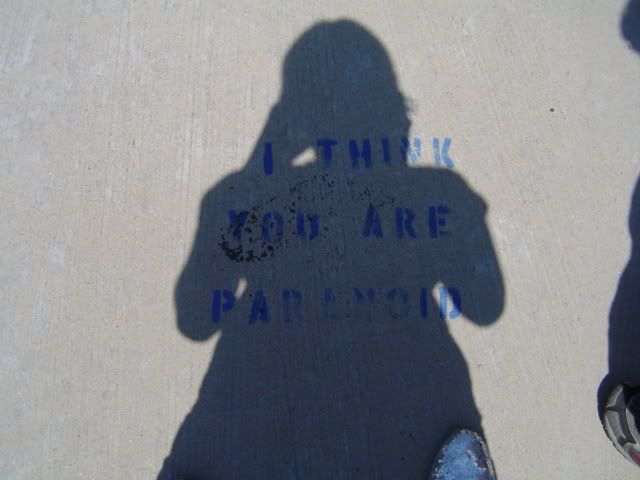Have you ever felt that a book holds in store for you an inevitable, possibly painful reckoning which you would rather avoid, and consequently you avoid reading the book? All the while, you know in the back of your mind that you must read it, or you must find some way to deal with what's coming. I haven't felt this way until now. I have been dreading this the way I'm sure a child must dread meeting a schoolyard bully after class is over.
The first blow is Kierkegaard's assertion that a person in despair continually brings the despair upon himself at every moment. Unlike a normal illness, where the continuation of the illness is not the sufferer's fault, despair can constantly be attributed to the self; at every moment the despairing person actively tries to throw away either the eternal, himself, or both, without success. (17) I hope my paraphrasing is more or less right.
An image comes to mind, of someone trying to erase an error on a page made in black ink. The error is just smeared all over the page, and all over the rubber eraser, which then becomes unable to erase lead markings. What a mess.
I also think of a drowning person whose attempts to swim only ensnare him deeper into a dangerous undercurrent. This is so grave and serious that you should not misread Kierkegaard as saying, "Toughen up, kid, and take responsibility for your despair, because it's your fault." It is your own fault, but it's a mess you can't get yourself out of.
I wonder if there's any way I can depict this poetically. I'll have to think about it more.
Meanwhile, here's an addendum to my earlier poetic statement:
I'm interested in exploring the uncomfortable tension we all experience as creatures caught between the temporal and eternal. This tension is so difficult to navigate that most of us settle at one end, dogmatically opposing the existence or veracity of the other. This may be why (as it seems to me) popular and even scientific opinion swings back and forth like a pendulum between two opposite perspectives, with any truly moderate approaches denounced from both sides.
Many people are unable or unwilling to hold in mind two extreme perspectives at once, granting a fair chance to both, and realizing that the truth lies somewhere in between. I think most truths are nestled somewhere in this elusive tension. It requires bravery to venture from your outpost at one end of the spectrum to investigate the no-man's-land in between. It's so hard for people to admit they might be wrong that they might prefer to risk actually being wrong, if only to avoid that admission.
In my work, and in my life, I want to take this risk. People already think I'm weird and different. I never fit in anyway. So I will venture out toward the unresolvable tension and embrace it.
